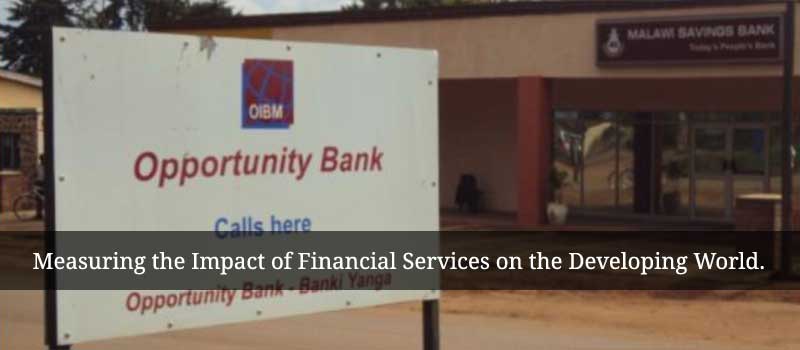Impact of Micro-Savings on Shock Coping Strategies in Rural Malawi
The majority of rural Malawians depend on agriculture for their livelihoods and experience frequent droughts, floods, and other unexpected adverse events such as illness and price fluctuations, referred to as shocks, that lead to income and asset loss. While there is an option of doing nothing in the wake of a shock, many also tend to use several coping strategies including informal insurance, savings, loans, receiving aid and remittances, reducing consumption, and liquidating assets to at least sustain their welfare levels prior to the shocks.
In this paper, we discuss the impact of improved access to micro-savings from formal financial institutions on the ability of rural households to manage shocks ex-post to their occurrence. We use a large panel data (interviewed in 2008 and again in 2010) gathered from 2,006 randomly selected households in Central Malawi on their use of financial services, shocks, and other household characteristics in an area that experienced the introduction of the Opportunity International Bank of Malawi (OIBM). OIBM is a savings-led bank that began its operation using a mobile bank — bank on wheels — in rural central Malawi in August of 2007 and in some respects tailored its savings products to households in rural areas.
We posit that improved access to formal savings services helps households cope with adverse shocks better, and by reducing their use of sub-optimal coping behaviors such as doing nothing, depleting productive assets, and reducing consumption levels. In other words, we expect that households with higher access to and use of formal micro-savings services would show higher ability to respond to adverse shocks, instead of doing nothing, and use better coping strategies than without it.
Specifically, we examine the following:
- Does improved access to and take- up of OIBM savings services help households reduce their use of sub-optimal coping behaviors?
- Do the impacts vary by the wealth status of the households and type of shocks experienced?
For this study, we define shocks as uncommon and mostly unexpected adverse events that strike a household without much warning. We consider common and fairly expected events such as births, weddings, school graduations, and events such as funerals, which are only unpredictable in terms of timing, to be life-cycle events and not shocks. Coping mechanisms are measures taken by households to help them restore their lives as best as possible to pre-shock welfare levels.




